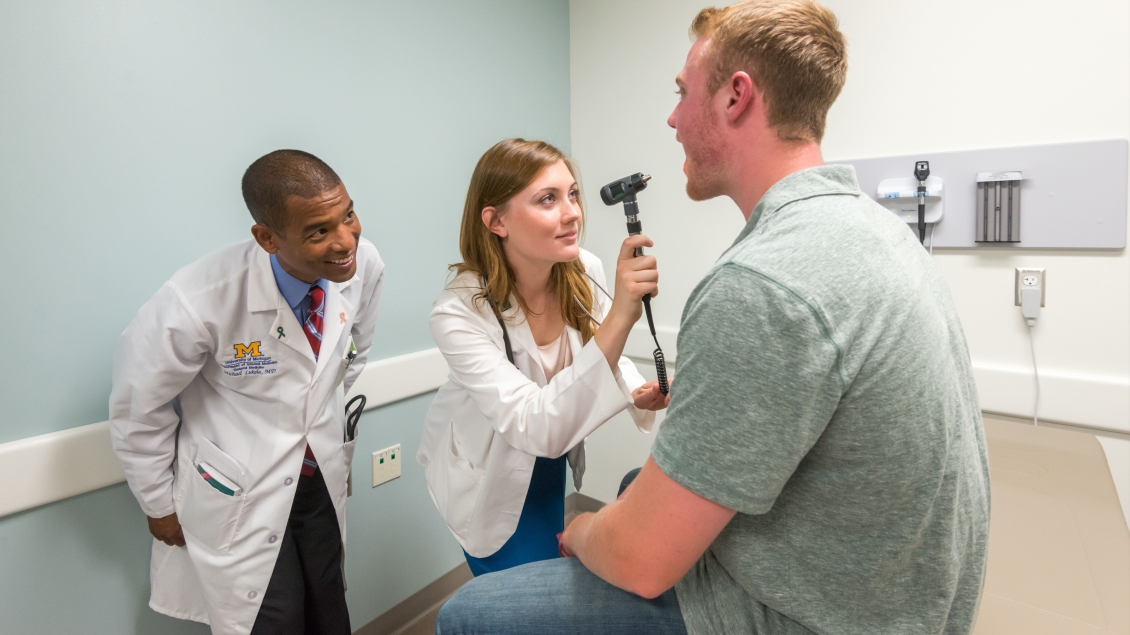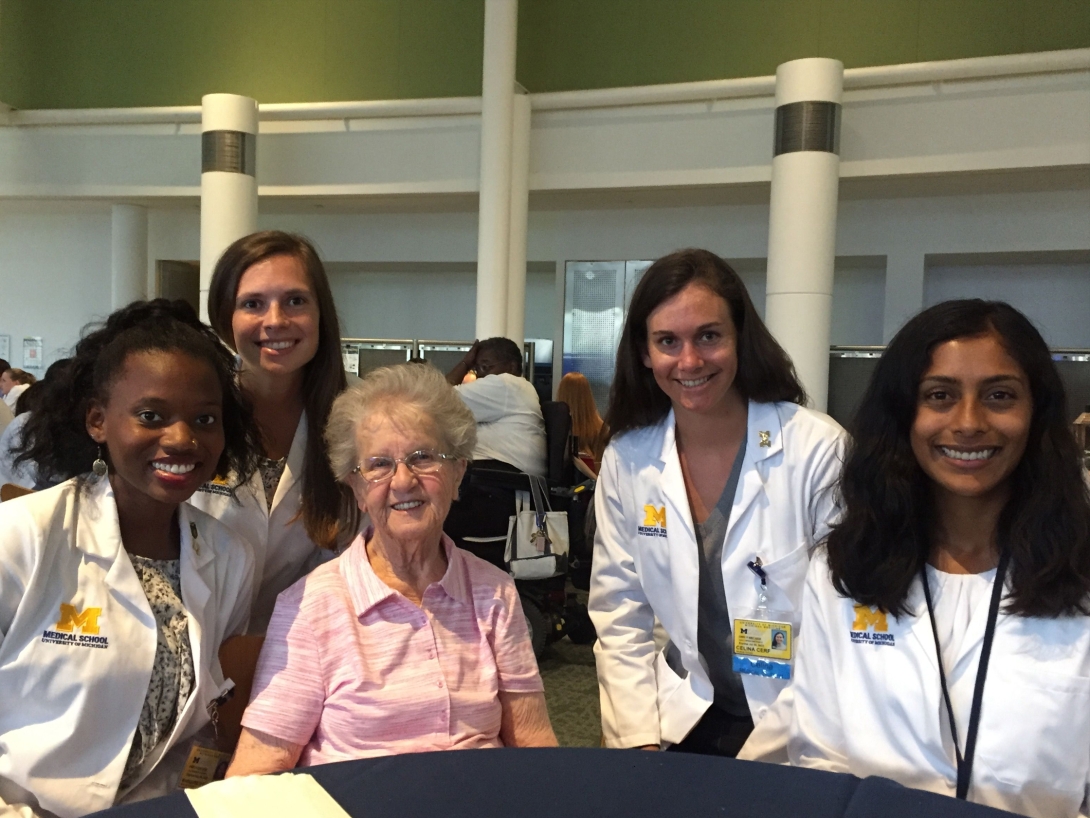
Bedside Manners
The Doctoring Course helps provide the foundation to enable each student to become a thoughtful and skilled physician.
Caring for Patients, Families and Communities
The Doctoring Course helps provide the foundation to enable each student to become a thoughtful and skilled physician.
With your Doctoring Group, you will:
- Develop an emerging mastery of clinical skills, teamwork, communication, and effective collaboration with patients/families and health care providers
- Shape your professional identity by critically evaluating the complexities of clinical medicine and the personal, psychosocial and societal aspects of illness
Our Doctoring Course spans all four years, following the same faculty and staying with same small group of 10-12 students. With conversations on ethical and socio-behavior topics, students will be able to take it to that next level as they advance in their learning. When they encounter situations in the clinic, they will have faculty there to support them while they figure it out—all in real time.
Longitudinal Learning in Small Groups
Doctoring is a longitudinal four-year course taught in small groups of 10-12 students. Each small group is facilitated by two faculty members. The faculty members will not only serve as your instructors but also as your coaches and mentors. You will get to know the members of your small group very well, learning, sharing stories and growing in the journey to becoming a doctor together.
Mastering Clinical Skills
Doctoring will help you master your clinical skills. You will learn how to take a history, how to communicate with patients, and how to perform a physical exam. You will get to practice these skills on standardized patients with real-time feedback from your faculty members.
Engaging in Small Group Discussions
Through several small group discussions, you will begin to explore how your personal worldview impacts your professional identity and decisions. Together you will discuss topics such as bias, ethics, humanism in medicine, health disparities, and social justice. Understanding where you come from will improve your awareness of and sensitivity to your patients’ lives.

Learning from Patients
There are several opportunities to gain the patient perspective in Doctoring, including panel sessions where patients come in to share their experiences with the health care system. Learning directly from patients is a powerful and unique experience that cannot be duplicated in a classroom.